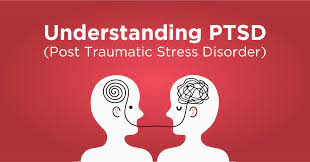Traumatic Experiences: Understanding, Coping, and Healing
Traumatic experiences can have a profound impact on our lives, leaving lasting emotional and psychological scars. Whether it’s a natural disaster, a car accident, the loss of a loved one, or any other distressing event, trauma can shake us to our core. It’s important to acknowledge that everyone responds to trauma differently, and there is no one-size-fits-all approach to healing. However, understanding the nature of trauma and implementing healthy coping mechanisms can support the journey towards recovery.
Firstly, let’s define what trauma is. Trauma refers to an overwhelming event or series of events that exceed our ability to cope with them emotionally or physically. It disrupts our sense of safety and security, leaving us feeling helpless and vulnerable. Trauma can manifest in various ways such as intrusive thoughts, nightmares, flashbacks, anxiety, depression, or even physical symptoms like headaches or stomachaches.
Coping with trauma requires patience and self-compassion. It’s crucial to create a safe environment where you feel supported and understood. Seeking professional help from therapists or counselors who specialize in trauma can provide invaluable guidance throughout the healing process. They can help you navigate through your emotions and develop healthy coping strategies tailored to your specific needs.
One effective approach for healing traumatic experiences is therapy techniques such as Cognitive Behavioral Therapy (CBT) or Eye Movement Desensitization and Reprocessing (EMDR). CBT focuses on identifying negative thought patterns related to the traumatic event and replacing them with more adaptive ones. EMDR utilizes bilateral stimulation techniques to process distressing memories and reduce their emotional impact.
Self-care plays a pivotal role in recovering from trauma. Engaging in activities that bring you joy and relaxation can help restore a sense of normalcy amidst the chaos. This might include practicing mindfulness or meditation exercises, engaging in creative outlets like art or writing, spending time in nature, or participating in physical activities that promote overall well-being.
Building a strong support system is also essential. Surround yourself with people who offer empathy, understanding, and a non-judgmental space to share your feelings. Connecting with support groups or online communities of individuals who have experienced similar traumas can provide a sense of belonging and validation.
It’s important to remember that healing from trauma is a gradual process. There may be setbacks along the way, but each step towards recovery is significant. Be patient with yourself and celebrate the small victories. Remember, you are not alone in this journey.
If you know someone who has experienced trauma, it’s crucial to approach them with compassion and empathy. Listen actively without judgment and let them know you are there for support when they are ready to share their experiences. Avoid pressuring them into discussing their trauma if they are not comfortable doing so.
Traumatic experiences can be incredibly challenging, but with time, professional help, self-care, and a supportive network, healing is possible. Remember that your story doesn’t have to define you; it can become a source of strength and resilience as you move forward on your path towards healing and growth.
5 Essential Tips for Coping with Trauma: Seek Professional Help, Practice Self-Care, Seek Social Support, Find Joy, and Educate Yourself
- Seek professional help if you are struggling with the effects of trauma. Mental health professionals can provide support and guidance to help you manage your symptoms.
- Take time for self-care and relaxation activities such as yoga, meditation, deep breathing exercises, or journaling to help manage stress levels and cope with trauma.
- Reach out to family and friends for social support in order to share your experiences and feelings related to the trauma.
- Participate in activities that bring joy into your life such as hobbies, exercise, or volunteering in order to promote healing from the trauma experience.
- Educate yourself about traumatic events and their effects on mental health so that you can better understand your own experiences with trauma.
Seek professional help if you are struggling with the effects of trauma. Mental health professionals can provide support and guidance to help you manage your symptoms.
Seeking Professional Help: A Vital Step in Healing from Trauma
Experiencing trauma can leave a lasting impact on our mental and emotional well-being. If you find yourself struggling with the effects of trauma, seeking professional help is a crucial step towards healing and recovery. Mental health professionals have the expertise and tools to provide the support and guidance needed to manage your symptoms effectively.
Trauma can manifest in various ways, such as anxiety, depression, post-traumatic stress disorder (PTSD), or other mental health conditions. These symptoms can significantly disrupt your daily life, relationships, and overall sense of well-being. It’s important to remember that there is no shame in seeking help when you need it.
Mental health professionals, such as therapists or counselors specializing in trauma, are trained to create a safe space for you to express your thoughts and emotions without judgment. They can help you understand the impact of trauma on your life and develop coping strategies tailored to your specific needs.
Therapy sessions provide an opportunity for you to explore your experiences, process difficult emotions associated with the trauma, and learn healthy ways to manage triggers or distressing memories. Through evidence-based approaches like Cognitive Behavioral Therapy (CBT), Eye Movement Desensitization and Reprocessing (EMDR), or other therapeutic techniques, professionals can guide you towards healing and resilience.
In addition to therapy, mental health professionals can also offer valuable resources and referrals to support groups or other specialized services that may be beneficial for your recovery journey. These additional supports can provide a sense of community and understanding as you navigate through the challenges of healing from trauma.
It’s important to remember that seeking professional help is not a sign of weakness but rather an act of strength and self-care. Taking this step shows that you are committed to your well-being and willing to invest in yourself.
If you are uncertain about where to start or how to find a mental health professional specializing in trauma, reach out to your primary care physician or trusted healthcare provider. They can provide recommendations and help you connect with the right professional who can support you on your healing journey.
Remember, healing from trauma takes time, and everyone’s journey is unique. By seeking professional help, you are taking an important step towards reclaiming your life and finding the strength to move forward. You deserve support, understanding, and the opportunity to heal.
Take time for self-care and relaxation activities such as yoga, meditation, deep breathing exercises, or journaling to help manage stress levels and cope with trauma.
Managing Trauma: The Power of Self-Care and Relaxation
In the face of trauma, taking care of ourselves becomes even more crucial. Amidst the chaos and emotional turmoil, finding moments of peace and relaxation can be a powerful tool for healing. Incorporating self-care activities into our daily routines can help manage stress levels and provide a sense of calm amidst the storm.
One effective way to promote relaxation and cope with trauma is through practices like yoga, meditation, deep breathing exercises, or journaling. These activities allow us to connect with our bodies, minds, and emotions in a gentle and nurturing way.
Yoga offers a holistic approach to healing by combining physical postures with breath control and mindfulness. It helps release tension from the body while promoting mental clarity and emotional well-being. Engaging in a regular yoga practice can provide a safe space to explore our inner selves, process emotions, and cultivate resilience.
Meditation is another powerful tool for managing stress levels and finding inner peace. By focusing our attention on the present moment, we can quiet the mind and create space for healing. Meditation allows us to observe our thoughts without judgment, fostering self-awareness and promoting emotional balance.
Deep breathing exercises are simple yet effective techniques that can be practiced anywhere at any time. By consciously slowing down our breath and taking deep inhales followed by slow exhales, we activate the body’s relaxation response. This helps reduce anxiety, lower blood pressure, and bring about a sense of calmness during times of distress.
Journaling provides an outlet for expressing our thoughts, feelings, fears, or traumas in a safe and private manner. Writing allows us to process emotions more effectively while gaining insights into our experiences. It can be particularly helpful when navigating through complex emotions associated with trauma.
Remember that self-care is not selfish; it is an act of compassion towards ourselves. Taking time out of our busy lives to engage in these activities may feel like a luxury, but it is essential for our overall well-being. Prioritizing self-care allows us to recharge, replenish our energy, and build resilience in the face of trauma.
It’s important to note that while self-care activities can be beneficial, they are not a substitute for professional help. If you are struggling with the effects of trauma, seeking support from a therapist or counselor who specializes in trauma is highly recommended. They can provide personalized guidance and help you navigate through your healing journey.
Incorporating self-care and relaxation activities into your routine may not erase the pain caused by trauma, but it can provide solace and support along the way. Remember to be patient with yourself and allow healing to unfold at its own pace. By prioritizing self-care, you are taking an active step towards reclaiming your well-being and finding strength amidst adversity.
Reach out to family and friends for social support in order to share your experiences and feelings related to the trauma.
Reaching Out: The Power of Social Support in Trauma Recovery
When facing the aftermath of a traumatic experience, it’s common to feel overwhelmed and isolated. However, one of the most valuable resources we have in overcoming trauma is the support of our family and friends. Sharing our experiences and feelings with loved ones can provide a much-needed sense of comfort, understanding, and validation.
Trauma can create a whirlwind of emotions that may be difficult to navigate alone. By reaching out to family and friends, we open up an avenue for communication that allows us to express our thoughts and feelings related to the trauma. Simply talking about our experiences can be incredibly cathartic, as it helps us process what we’ve been through and make sense of our emotions.
Sharing with trusted individuals who are empathetic and non-judgmental creates a safe space where we can be vulnerable without fear of being dismissed or invalidated. Their support can help us feel less alone in our journey towards healing. Family members who experienced the same traumatic event may provide a unique perspective as they share similar experiences, fostering a sense of solidarity.
Additionally, social support plays a vital role in normalizing our reactions to trauma. Sometimes, survivors may blame themselves or feel ashamed for their emotional responses. However, when we connect with others who have gone through similar experiences or who understand the nature of trauma, we realize that our reactions are valid and part of the healing process.
It’s important to note that not everyone will respond perfectly when we share our trauma with them. Some individuals may struggle to understand or provide the support we need. In such cases, seeking professional help from therapists or joining support groups specifically designed for trauma survivors can offer additional guidance and validation.
Remember that reaching out doesn’t necessarily mean sharing every detail if you’re not ready or comfortable doing so. It’s okay to start small by expressing your general feelings or asking for someone’s presence without going into specific details. Each person’s healing journey is unique, and it’s important to respect your own boundaries and pace.
In times of trauma, the power of social support should not be underestimated. By reaching out to family and friends, we create a network of understanding and compassion that can significantly aid in our recovery. Together, we can navigate the path towards healing, finding solace in the knowledge that we are not alone in our struggles.
Participate in activities that bring joy into your life such as hobbies, exercise, or volunteering in order to promote healing from the trauma experience.
Promoting Healing through Joyful Activities: Overcoming Trauma
Traumatic experiences can leave deep emotional wounds that take time and effort to heal. One powerful way to aid in this healing process is by actively participating in activities that bring joy and fulfillment into your life. Engaging in hobbies, exercise, or volunteering can have a profound impact on your overall well-being and help you navigate the path towards recovery.
When we experience trauma, our sense of joy and pleasure often diminishes as we grapple with the aftermath of the distressing event. Participating in activities that bring us joy helps to counteract this by reintroducing positive emotions and experiences into our lives.
Hobbies can be a wonderful outlet for self-expression and enjoyment. Whether it’s painting, playing an instrument, gardening, or cooking, immersing yourself in a hobby allows you to focus your energy on something you love. This diversion from negative thoughts and emotions provides a sense of purpose and accomplishment, helping to rebuild self-esteem that may have been damaged by trauma.
Exercise is another powerful tool for healing from trauma. Physical activity releases endorphins, which are natural mood boosters. Engaging in regular exercise not only improves physical health but also has positive effects on mental well-being. It helps reduce symptoms of anxiety and depression while promoting better sleep patterns and increased energy levels.
Volunteering is an excellent way to not only give back to the community but also promote personal healing from trauma. By helping others, we shift our focus away from our own pain and gain a sense of purpose through making a positive impact on someone else’s life. Volunteering can also provide opportunities for social connection, which is essential for overcoming feelings of isolation or disconnection that often accompany traumatic experiences.
It’s important to note that engaging in joyful activities does not mean ignoring or suppressing the pain caused by trauma. Healing takes time, and it’s crucial to allow yourself space for processing your emotions. However, incorporating activities that bring joy into your life can provide a much-needed respite and contribute to your overall healing journey.
Remember, everyone’s healing process is unique, and it’s essential to find activities that resonate with you personally. Experiment with different hobbies, exercise routines, or volunteer opportunities until you discover what brings you the most joy and fulfillment.
If you’re unsure where to start, consider seeking support from therapists or support groups specializing in trauma recovery. They can provide guidance on finding activities that align with your interests and offer additional resources for healing.
By actively participating in activities that bring joy into your life, you are taking an important step towards reclaiming your sense of happiness and well-being. Embrace the power of joyful activities as a means of promoting healing from trauma, and remember to be patient and gentle with yourself throughout the process.
Educate yourself about traumatic events and their effects on mental health so that you can better understand your own experiences with trauma.
Educate Yourself: Understanding Traumatic Events and Their Impact on Mental Health
Traumatic events can have a profound impact on our mental health, leaving us feeling overwhelmed and struggling to make sense of our experiences. One valuable tip for navigating the aftermath of trauma is to educate yourself about traumatic events and their effects on mental health. By gaining knowledge and understanding, you can better comprehend your own experiences with trauma and take steps towards healing.
Learning about the nature of trauma helps to normalize your reactions and emotions. It allows you to recognize that your responses are valid and understandable given the circumstances. Trauma affects individuals differently, so understanding the wide range of possible reactions can help you feel less alone in your journey.
Researching the effects of trauma on mental health can also provide insight into common symptoms and challenges that survivors often face. This knowledge allows you to identify patterns in your own thoughts, feelings, and behaviors, which can be empowering. By recognizing these patterns as potential consequences of trauma, you can begin to separate them from your core identity.
Educating yourself about trauma equips you with the language to express what you’re going through. It enables effective communication with healthcare professionals, therapists, or support groups who can provide guidance and assistance tailored to your specific needs. Being able to articulate your experiences facilitates a deeper understanding between yourself and those who are there to support you.
There are numerous resources available for learning about traumatic events and their impact on mental health. Books, articles, documentaries, podcasts, and online courses are just a few examples of accessible mediums that offer valuable insights into the subject matter. Additionally, reputable organizations specializing in trauma provide informative websites with comprehensive information.
Remember that educating yourself is an ongoing process. Trauma research continually evolves as new discoveries are made in the field of psychology. Stay open-minded and receptive to new information while being mindful of how it resonates with your personal experiences.
While educating yourself about traumatic events is beneficial, it’s important to approach this process with self-care in mind. Take breaks when needed, as delving into heavy subject matter can be emotionally taxing. Engage in self-care practices that promote your well-being, such as mindfulness exercises, spending time in nature, or engaging in creative outlets.
By educating yourself about traumatic events and their effects on mental health, you empower yourself to better understand your own experiences with trauma. This knowledge serves as a foundation for healing and growth, allowing you to navigate the complexities of your journey towards recovery with greater clarity and resilience.




